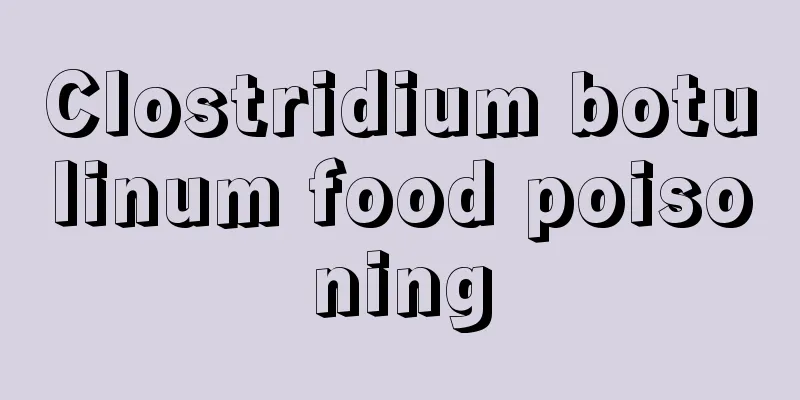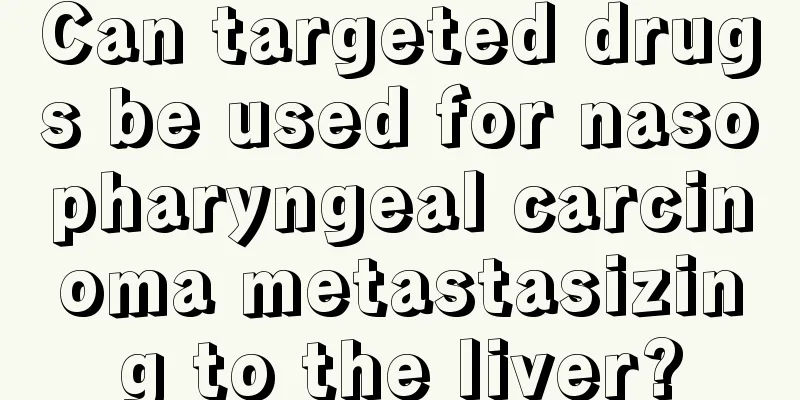Clostridium botulinum food poisoning

|
In life, we only know that food can be poisonous if it is not cooked properly, and that mushrooms can be poisoned if eaten improperly. However, we do not realize that many things can be poisonous and are closely related to our bodies, such as Clostridium botulinum food poisoning. This type of food poisoning requires careful understanding. What factors cause people to be poisoned, and under what circumstances will the poisoning occur? pathogen Clostridium botulinum (C. botulinum) food poisoning is caused by the exotoxin produced by Clostridium botulinum, namely botulinum toxin. The pathogen Clostridium botulinum is a Gram-positive, anaerobic, short and thick rod that forms oval spores that are thicker than the bacterial body at 20-25℃. When the pH is lower than 4.5 or greater than 9.0, or when the ambient temperature is lower than 15. C or above 55 ℃, Clostridium botulinum spores cannot reproduce and do not produce toxins. Clostridium botulinum spores are highly resistant and need to be subjected to high-pressure steam 121. C for 30 minutes, or dry heat at 180℃ for 5 to 15 minutes, or wet heat at 100℃ for 5 hours to kill it. Botulinum toxin is a strong neurotoxin that is 10,000 times more toxic than potassium cyanide. The lethal dose for humans is about 0.1 g. Depending on the antigenicity of the toxins produced, botulinum toxin is divided into 8 types: A, B, Ca, CB, D, E, F, and G. Four types, A, B, E, and F, cause human poisoning. Among them, types A and B are the most common. Most of the botulism poisoning reported in my country is type A, followed by types B and E. Unlike the typical exotoxin production method of other bacteria, botulinum toxin is not released by living bacteria, but first produces a non-toxic toxin precursor in the cytoplasm of living Clostridium botulinum. This precursor is a complex composed of a neurotoxin subunit and one or more non-toxin subunits. When the bacteria die and autolyze, the complex toxin precursor is released. This precursor is heat unstable and is destroyed by heating at 75-850°C for 5-15 minutes, or at 100°C for 1 minute. The complex form of botulinum toxin enters the stomach with food and can resist the digestion of gastric acid and enzymes. It enters the small intestine and is decomposed by small intestinal trypsin. Unlike the typical exotoxin production method of other bacteria, botulinum toxin is not released by living bacteria, but first produces a non-toxic toxin precursor in the cytoplasm of living Clostridium botulinum. This precursor is a complex composed of a neurotoxin subunit and one or more non-toxin subunits. When the bacteria die and autolyze, the complex toxin precursor is released. This precursor is heat unstable and is destroyed by heating at 75-85°C for 5-15 minutes, or at 100°C for 1 minute. The complex form of botulinum toxin enters the stomach with food and can resist the digestive effects of gastric acid and enzymes. It enters the small intestine, is broken down by small intestinal trypsin, and dissociates into neurotoxins in a higher pH environment, which are absorbed into the blood in the small intestine. |
<<: What to do if you get poisoned by eating lentils
>>: What to do if you are poisoned by hydrogen cyanide
Recommend
Can crabs be heated in a microwave?
Crab is a very common food in our daily life. Man...
What are the snacks in Kaifeng
Kaifeng is a city with a long history and culture...
Nasopharyngeal carcinoma neck and serum EB virus examination
The incidence of nasopharyngeal carcinoma ranks f...
The clinical manifestations of laryngeal cancer depend on the location of the cancer
Because laryngeal cancer occurs in different part...
Can an 80-year-old with bile duct cancer undergo surgery?
Whether an 80-year-old with bile duct cancer can ...
Which targeted therapy drug is better for nasopharyngeal carcinoma
Many nasopharyngeal cancer patients are suffering...
Brief analysis of the nursing care of patients with cervical cancer after common radiotherapy
Radiotherapy is one of the common treatments for ...
How to distinguish early, middle and late stages of nasopharyngeal carcinoma
How to distinguish the early, middle and late sta...
What treatment measures should be taken for knee cartilage injuries?
Knee cartilage injury is a common disease at pres...
Is it okay to brew strong tea with Coke
Many people prefer to use cola to make strong tea...
Can the small black spots poked into the flesh by a pencil be removed?
I believe many people have had the experience of ...
What are the dietary taboos for liver cancer patients? Eating three kinds of bamboo shoots can help prevent liver cancer for liver disease patients
For patients with liver diseases such as hepatiti...
Can I run in mild smog?
Generally, you cannot run in mild haze as it will...
How to defeat the villain
There is a saying that everyone must have heard: ...
What is the correct sitting posture
The correct sitting posture is to tuck your chin ...









